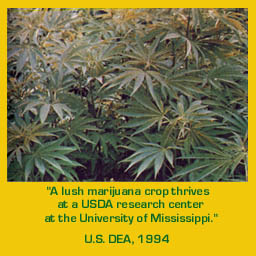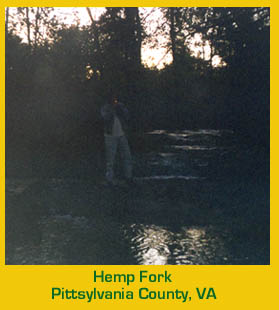
Recreational Marijuana

Quotes

 "Marijuana is the fourth most popular drug in the world, proceeded only by alcohol, nicotine and caffeine. Unlike these drugs however, marijuana has never, in the history of mankind, caused a single death. Also, unlike these drugs, marijuana is illegal in the United States.
"Marijuana is the fourth most popular drug in the world, proceeded only by alcohol, nicotine and caffeine. Unlike these drugs however, marijuana has never, in the history of mankind, caused a single death. Also, unlike these drugs, marijuana is illegal in the United States.
Today we have a literal war on this plant and its users! Every 45 seconds someone in America is arrested on marijuana charges (700,000 arrests annually – more than all the violent crime arrests combined, according to FBI statistics).
We have military helicopters flying overhead from spring through autumn in search of hemp's domestic growth (Due to black-market prices, cannabis is America’s #1 cash crop, as it was legitimately through the 18th and 19th centuries). We have our military stationed on our southern borders and the Coast Guard and Air Force patrolling the seas and skies in search of its international traffic. We have soldiers (police) in full gear, with their weapons locked and loaded, kicking down doors and crashing through windows of homes in every city in America to stop its use.
In many cases innocent citizens are shot and killed while reaching for weapons to defend themselves against apparent intruders. Women, children and the elderly have been held at gunpoint and screamed at while their homes were ripped apart by the very people hired to protect them. (This is in direct defiance of the fourth amendment: "No warrants shall issue, but upon probable cause, and particularly describing the place to be searched, and the person or things to be seized.")
In scenes reminiscent of Nazi Germany, the police, with their German Shepherds, stand alongside our highways and stop innocent citizens at random, forcing them out of their vehicles, where they are searched and their vehicles rummaged through by the dogs and the police. In cases where there is no dog, people have even been subjected to strip searches right on the side of the road. (In 1922 the Supreme Court ruled that it was "unconstitutional for the police to randomly stop motorists in an attempt to locate illegal alcohol.")
Even the casual user of marijuana can be denied: the basic protection of the Bill of Rights, government grants to higher education, health and accident coverage on insurance claims, employment, social security benefits, and even parental rights. Marijuana arrests can result in the seizure and forfeiture of vehicles, homes and assets; bails and fines up to millions of dollars, and prison sentences up to life with no parole (even if no violent crime has been committed).
These police and military efforts cost taxpayers billions of dollars annually, and they do not curb the manufacture, traffic, or the use of marijuana in America. So why do we fight this war on marijuana? Simple: marijuana is an illegal drug!
So why is it illegal?
Prior to the turn of the 20th century very few people had ever heard the word marihuana (marijuana), a Mexican slang word for cannabis hemp. By 1920 a few states along the southern border had passed marijuana laws based solely on racial prejudice: "Mexican laborers and blacks that smoked this drug were disrespectful to whites, and were seducing white women with marihuana and their satanic music." Newspapers began printing articles about marihuana-crazed Negroes raping white women, and Mexicans as frenzied beasts under the influence of marihuana.
These stories became increasingly more violent and by the mid 1930’s nearly every state in the Union had passed marijuana laws. During this time, throughout America, there remained thousands of legal hashish parlors, and hemp continued to be grown –for fiber, seed, oil and medicine. Also, virtually no one in these industries (which included farmers, textile workers, bird seed producers, paint, varnish and machine-lubricating oil manufacturers, physicians, drug companies and so on) knew that this "killer weed from Mexico," marihuana, was in fact cannabis hemp.
By 1935 marijuana was proclaimed to be "the most violence causing drug known to man" by Harry J. Anslinger, director of the Federal Bureau of Narcotics (1931-1962), who demanded federal laws prohibiting marihuana.
A draft, based on the recently passed National Firearms Act was drawn up by the Treasury Department, and passed through the House Ways and Means Committee and on to Congress. The Firearms Act "allowed" anyone to buy a machine gun, but required that the buyer pay a $200 transfer tax and carry out the purchase on an order form.
The Marihuana Tax Stamp Act called for importers, manufacturers, sellers and distributors to register with the Secretary of the Treasury and pay an annual occupational tax and a transfer tax upon dealings in marihuana. Transfers were taxed at $1 an ounce for registered dealers (the current price of cannabis), and $100 an ounce for unregistered dealers. ("Any person who is convicted of a violation of any provision of this Act shall be fined not more than $2,000 or imprisoned not more than 5 years, or both, in the discretion of the court.")
Testimony, before Congress, which led to the passing of this law, consisted almost entirely of the statements of Mr. Anslinger.
 "The marihuana cigarette is one of the most insidious of all forms of dope, and American children must be protected from it. The marihuana user imagines the most unbelievable things, giving way to monstrous extravagances. There are emotional disturbances during which the user is powerless to direct his thoughts, loses the power to resist emotions, and may commit violence that knows no bounds. This delirious state is accompanied by vivid kaleidoscopic visions usually of a gruesome nature, followed by a temporary amnesia of all that has transpired. The continued use of this drug leads to mental deterioration and frequently to insanity."
"The marihuana cigarette is one of the most insidious of all forms of dope, and American children must be protected from it. The marihuana user imagines the most unbelievable things, giving way to monstrous extravagances. There are emotional disturbances during which the user is powerless to direct his thoughts, loses the power to resist emotions, and may commit violence that knows no bounds. This delirious state is accompanied by vivid kaleidoscopic visions usually of a gruesome nature, followed by a temporary amnesia of all that has transpired. The continued use of this drug leads to mental deterioration and frequently to insanity."
Anslinger then read newspaper articles about rapes and murders committed by minorities and others under the influence of marihuana. One of these stories was of a boy who had killed his entire family with an axe after smoking one marihuana cigarette: "The boy was found laughing deliriously and had no recollection of what he had done."
"In the final analysis," Anslinger continued, "the committee may conclude that the legitimate uses of marihuana are so negligible as compared to the injurious effect it has upon the morals of the people of this country, that they will conclude to impose a prohibitive tax upon the production, manufacture, and sale of marihuana, and thus discourage its use in any form in this country."
With these reports, from the director of the FBN, Congress ignored the protests of the AMA and various members of the hemp industry and passed The Marihuana Tax Stamp Act of 1937.
Within a few years marijuana, as an intoxicant, cannabis, as a medicine, and hemp, as an industrial crop, had become illegal in America.
Not because of scientific or medical proof that marijuana was dangerous to an individual’s physical or mental health. (All available evidence ran contrary to this.)
Not because of statistics proving marijuana users were a menace to society. (FBI records of that period showed that 65 percent of all violent crimes were alcohol-related, as they are today.)
But marijuana -- and the entire hemp industry -- was prohibited because of lies fueled by racial prejudice, fear, and the secret incentives of Big Business. (Today DuPont remains the largest producer of synthetic fibers and finishes, while hemp hasn’t been legally grown in America since WWII).
In 1948, Anslinger went before Congress and testified, “The Russians could use marihuana to turn our young into pacifists who wouldn’t fight for our country!” And marijuana remained illegal based on the completely opposite reason for which it had been prohibited 11 years earlier.
In 1972, Richard Nixon’s National Commission on Marihuana Abuse concluded, “Marihuana does not lead to criminal, violent or aggressive behavior. The effects observed suggest that it may be more likely to neutralize aggressive and criminal acts. If its use is to be discouraged, it must be discouraged on grounds other than its role in the commission of criminal or violent acts.”
Meanwhile, on December 17th, 2001, president George W. Bush, along with the Attorney General and the directors of the ONDCP and DEA, issued a statement calling recreational drug users co-conspirators to the world of terrorism. Because "the traffic in drugs finances these groups to commit acts of murder."
The lie continues, 29 years later, to fill our prisons with non-violent cannabis users, 85% of whom are arrested for simple possession – while murderers, rapists, thieves and child abusers go free.

Quotes

Email the hemphistorian
Copyright © 2001 kgs. All rights reserved.
edited and designed by joseyhill
 "The marihuana cigarette is one of the most insidious of all forms of dope, and American children must be protected from it. The marihuana user imagines the most unbelievable things, giving way to monstrous extravagances. There are emotional disturbances during which the user is powerless to direct his thoughts, loses the power to resist emotions, and may commit violence that knows no bounds. This delirious state is accompanied by vivid kaleidoscopic visions usually of a gruesome nature, followed by a temporary amnesia of all that has transpired. The continued use of this drug leads to mental deterioration and frequently to insanity."
"The marihuana cigarette is one of the most insidious of all forms of dope, and American children must be protected from it. The marihuana user imagines the most unbelievable things, giving way to monstrous extravagances. There are emotional disturbances during which the user is powerless to direct his thoughts, loses the power to resist emotions, and may commit violence that knows no bounds. This delirious state is accompanied by vivid kaleidoscopic visions usually of a gruesome nature, followed by a temporary amnesia of all that has transpired. The continued use of this drug leads to mental deterioration and frequently to insanity." 
 "Marijuana is the fourth most popular drug in the world, proceeded only by alcohol, nicotine and caffeine. Unlike these drugs however, marijuana has never, in the history of mankind, caused a single death. Also, unlike these drugs, marijuana is illegal in the United States.
"Marijuana is the fourth most popular drug in the world, proceeded only by alcohol, nicotine and caffeine. Unlike these drugs however, marijuana has never, in the history of mankind, caused a single death. Also, unlike these drugs, marijuana is illegal in the United States.